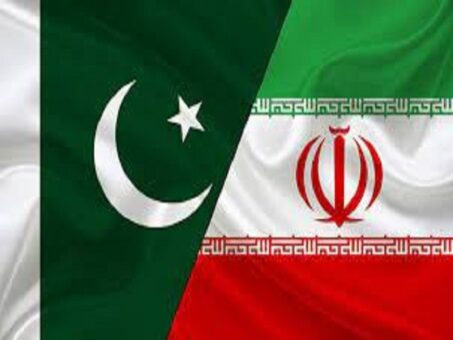Islamabad, August 3, 2025 – In a renewed effort to foster regional connectivity and mutual prosperity, Pakistan and Iran have reaffirmed their commitment to deepen bilateral trade and enhance border cooperation.
This pledge came during high-level talks held in Islamabad between Pakistan’s Federal Minister for Commerce, Jam Kamal Khan, and Iranian Minister for Industry, Mines and Trade, Mohammad Atabak. The meeting took place on the sidelines of Iranian President Masoud Pezeshkian’s official two-day visit to Pakistan.
The dialogue signaled a strategic shift in Pakistan-Iran relations, with both sides expressing the intent to accelerate economic engagement and remove long-standing border bottlenecks. Minister Atabak praised Pakistan’s proactive role in advancing bilateral trade and emphasized the importance of turning diplomatic momentum into structured economic outcomes. “Without the rapid engagement and determination from your team, we wouldn’t have reached this level of progress,” he said.
Jam Kamal Khan echoed these sentiments, describing the current moment as an ideal opportunity to solidify economic cooperation. “This is the time to act. Passion and political will must now translate into institutional frameworks,” he remarked. He stressed that Pakistan is prepared to move forward with Iran through platforms such as the Joint Economic Commission (JEC), sector-specific delegations, and regular B2B meetings.
Both sides identified agriculture, livestock, services, energy, and logistics as key sectors for collaboration. The ministers agreed that Pakistan and Iran should leverage their geographic proximity to reduce trade costs and maximize the use of border infrastructure. Citing regional models like ASEAN, Jam Kamal emphasized the importance of neighborhood trade, noting, “Geography is our discount. If Pakistan and Iran don’t utilize it, we lose valuable time and economic advantage.”
The potential of bilateral trade reaching $5–8 billion annually was highlighted, with both ministers envisioning a regional corridor that not only connects Pakistan and Iran but also extends to Turkey, Central Asia, and the Middle East. “This is more than trade—it’s the foundation of a regional economic bloc rooted in connectivity and resilience,” Jam Kamal added.
Minister Atabak proposed establishing a B2B day during every high-level visit, facilitating deeper engagement between Iranian and Pakistani business leaders. He also stressed the importance of implementing new trade agreements promptly and providing a stable framework to support traders. “Business communities on both sides are ready. Now, they need consistent support and facilitation from our governments,” he said.
Cultural and linguistic bonds between Pakistan and Iran were also acknowledged as valuable assets. Jam Kamal recounted a conversation with the CEO of an Iranian Special Economic Zone, who spoke in Balochi, as a testament to the deep-rooted ties between the two nations. “This isn’t just commerce—it’s community. Our shared history and people-to-people connections make our trade relationship unique and sustainable.”
The meeting concluded with a pledge to expedite the next Pakistan-Iran Joint Economic Commission session, prioritize border operations and logistics, and include both public and private stakeholders in shaping the future of bilateral trade. With mutual trust, political alignment, and shared economic goals, Pakistan and Iran appear ready to usher in a new era of strategic partnership poised to reshape regional trade dynamics.
